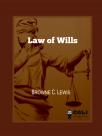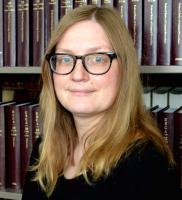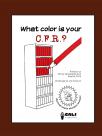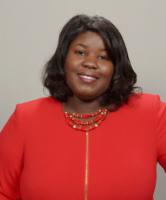Author of the Week: Michelle Hook Dewey
Michelle Hook Dewey received her Master of Library & Information Science degree from the University of Illinois. She has a J.D. and an LL.M. in health law and policy from Southern Illinois University. Michelle previously worked as a reference assistant and teaching fellow at S.I.U. While there she was responsible for the design and teaching of an online legal research and writing course for SIU’s Masters of Legal Studies program, assisting with the instruction and development of hybrid law classes and providing in-depth reference and research assistance to faculty and students. Michelle is currently a Law Reference Librarian & Assistant Professor at the University of Illinois.







